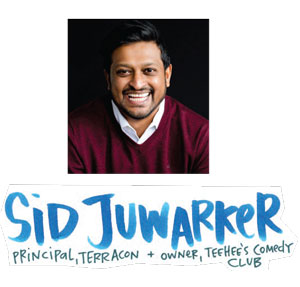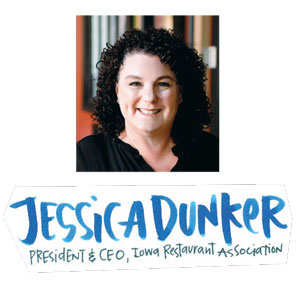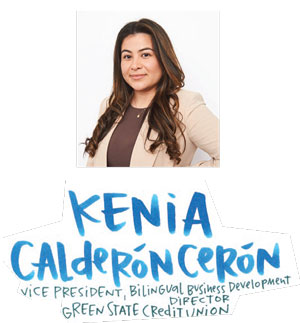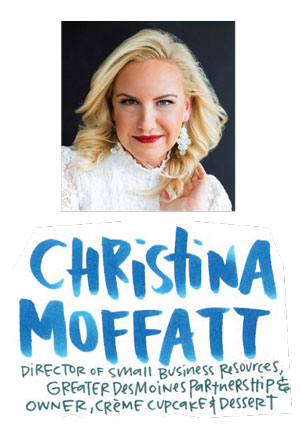13 ideas that apply to marketing and personal branding

Here are 13 ideas that this year’s 90 Ideas in 90 Minutes speakers shared about branding and marketing. Some of the ones I’ve included may not seem directly related to branding, but it’s as important to know your organization’s values and how you think about what standards you hold yourself to as it is to know what tactical marketing strategies work best. These strategies apply to both organizational and personal branding techniques.
Check out all of the speakers and all 90 of their ideas at businessrecord.com/90ideas.
– Emily Barske, editor
Your employees are your best marketing asset
Who talks about a business every day? The people who work there. Keep them happy and they’ll sing your praises loudly and often — and be happier and more productive too. Often we pour marketing dollars into convincing outsiders what we’re about while neglecting the ones who are closest to us. I’ve witnessed firsthand the impact on clients when Terracon employees talk on the job site about how much they love the company. It’s one of the reasons we get rehired. People who are passionate about their company can get your name mentioned positively in rooms you don’t know exist.
Stop using comedy to sell things if you’re not a company of funny people
Going viral is about more than hiring someone to imitate a style, vibe or trend. It has to work with the personality of your business or no one will remember it. Make sure what you’re marketing matches what you’re selling. If your viral ad brings someone in the door, but their experience doesn’t match the promise, what’s the point? Use what’s real. If your culture is goofy, be funny. If your culture is more serious, use that as a strength and be sincere.
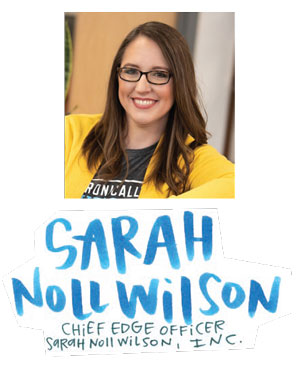
Trust is impossible to build at the moment you need it
In every single interaction we have with another person, we are either increasing, sustaining or decreasing trust. How often do you slow down to notice where you are on that continuum and, more importantly, where the other person is? Fun fact: Distrust is often silent. We don’t decide if we are trustworthy or not, others do. Act: Conduct a relationship audit. Write down the names of people who are important to your world and work. Then mark them as strong trust, conditional trust or low trust. Consider doing a relationship check-in by asking, “What could I amplify, do new or do differently to make this a powerful partnership?”
Constantly ask: Is it a rule or just a possibility?
This pandemic challenged every norm. What we did, how we did it, and who we did it with was thrown out. While we were figuring out our next steps, so were our clients. A common trap people fell into that limited their growth was confusing something as a rule instead of just a possibility. “Sarah, we won’t be able to build relationships virtually.” Me: “Is that a rule or just a possibility?” Cue new ideas and paths forward. Act: When ways of being and doing have been around awhile it serves us to ask, “Is this an actual rule we have to follow or just one way of doing this?” When you realize it’s the latter, innovation can emerge and growth evolves.
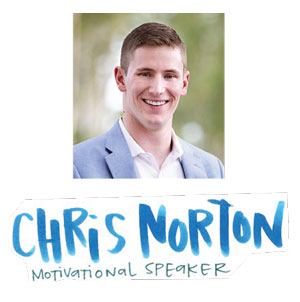
Pursue your values
Society, culture and people have too much influence on what we should value. Like money, possessions, image, likes and followers. We need to tune out external influences in order to follow what’s inside us. The more we know and listen to our own values, the less we will be swayed by someone else’s values. It will give you a compass to navigate tough choices.
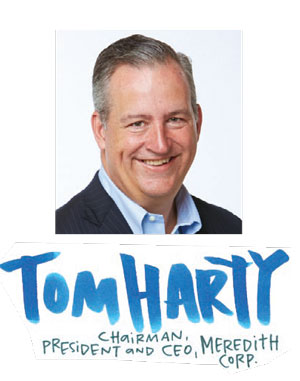
See the possibilities
The most exciting companies are constantly evolving. They have a clear vision for where they want to go and are flexible as to how they get there. Our culture of innovation, imagination and reimagination is one of the things I value most about Meredith. Some may think of us as only a magazine publisher, but we know we’re much more than that. Our brands inform, inspire and enrich the lives of Americans – especially women – through websites, streaming video, broadcast television, podcasts, social media, retail products and e-commerce.
Play to your strengths
If you have a superpower, make it a core area of emphasis and development. Carve out roles that allow you to play to those strengths. It’s not that you can’t do other things; it’s just that we all have our sweet spot. Those who know me know I’m a huge sports fan, especially hockey. Think about Michael Jordan, arguably one of the greatest athletes of our time and best player ever in the NBA. He took the Bulls to three championships and then retired to play minor league baseball. His competitive spirit, physical fitness, focus and determination made him a fair competitor on the baseball diamond, but his muscles, motor skills and mentality remained geared toward the court. He came out of retirement to take the Bulls to another three championships.
Be purple
When you’re the public voice or face of an organization, industry or cause, invariably you find yourself speaking on behalf of people from across the political spectrum. It’s imperative to stay laser-focused on your shared interests and messages. You may not be an elected official, but you do have constituents and they don’t care about your political affiliation. You don’t want to come off as being red or blue. You must be purple. Regardless of personal feelings or who you voted for, it is your duty to publicly thank, work with or call out elected officials based on how they are helping or harming those you speak for.
Arm yourself with survey data
COVID-19 brought the restaurant industry to its knees. Anyone could see it, but how did we prove it? With data — lots and lots of data. When you are the public voice or face of an industry in crisis, or just trying to get your story out — anecdotal evidence only goes so far. For months we surveyed industry members and blanketed the state with results. The media is hungry for quick bites of information, and we fed them real numbers consistently. The public needs digestible figures — 75% of owners, 1 in 3 people, half of restaurants, etc. Strip big facts down to a couple of words and your message is heard.
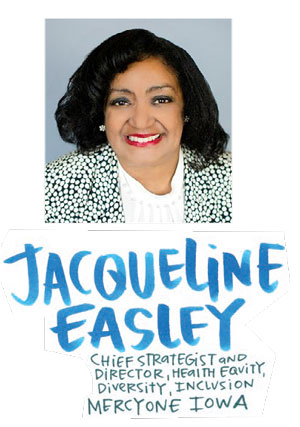
Walk the talk
There are many examples of actions speaking louder than words. Here’s one: Diversity is being invited to the party; inclusion is being asked to dance.
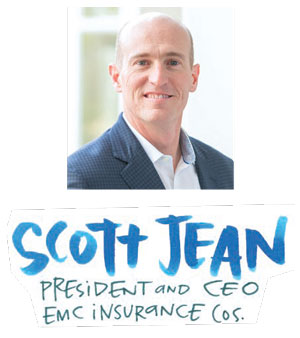
Keep your ‘why’ top of mind
At EMC, we often talk about our “why,” or purpose. We say our why is to improve lives – for our policyholders by providing peace of mind, for our agents by being a strong partner, for our team members by being a trusted and stable company that operates with honesty and integrity, for our communities by working to enhance quality of life, and so on. But in addition to thinking about your organization’s purpose, I challenge you to also think about your individual purpose and how it aligns. Each morning, I carve out time to reflect on my purpose to be a confident and decisive servant leader who empowers people and improves lives by building trust, coaching and connecting everyone to the vision of EMC.
Intersect data with stories
I’ve met people who make decisions based on data and others based on real-life stories. Both are valid and necessary. When establishing strategic objectives, I have found it helpful to intersect data with stories. This ensures that everyone in a team aligns with the vision and can see the importance and impact of the strategy.
I’m out of …
It’s pretty hard to bake when you don’t have the right ingredients. You might not have all the ingredients in your cupboard to make something successful, but what if your neighbor does? When I started in the baking industry 10 years ago, local bakers all saw each other as competition. I refused to look at it this way and approached things as if we could all sell better together. I now often work with home bakers to get them started in business, I sell products from other bakeries in my shop, I rent space to like-minded businesses when needed, and we tackle large projects as an industry together. Who can you collaborate with?

